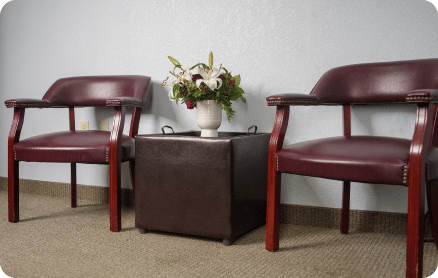You Asked, We Answered
We understand that navigating accounting, taxes, and financial planning can come with a lot of questions. That’s why we’ve put together this frequently asked questons page to provide clear, straightforward answers to the topics our clients ask about most. Whether you’re curious about tax deadlines, bookkeeping best practices, or how to get the most from our services, you’ll find helpful information right here. If you don’t see the answer you’re looking for, don’t worry — our team is always ready to assist you. Reach out anytime — we’re here to help.
Do I need a dental CPA?
The simple answer is yes. If you are a dentist, with a taxable income, investments, assets, and plan to eventually retire, then you need a dental CPA. Choosing the best person for the job is the hard part. Each must make the correct financial decisions to get his or her business started off right, including choosing the right kind of entity and keeping as much of their taxable income as legally possible. Our goal is to help you keep more of what you earn!
Are dental services subject to sales tax?
In most cases, dental services and appliances are exempt from sale and use tax. However, the sales of non-prescription toothpaste and toothbrushes can be subject to sales and use tax.
If you are required to collect sales tax on nonexempt transactions such as toothbrushes and toothpaste, your reporting and remittance schedule depends upon how much sales tax you are collecting within a monthly, quarterly, or yearly time frame. You are required to file a Texas Sales and Use Tax Return (Form 01-117) and submit the collected tax based on the collection levels below:
- You must file Monthly if you collect $500 or more tax in a month.
- You must file Quarterly if you collect <$500 per month or <$1500 per quarter.
- If you collect less than $1,000 in tax per year, then you need only file one per year. However, if you are collecting close to this level of tax then a quarterly filing pattern is a safer option.
If you decide to sell non-prescription items to your patients, the first step is to apply for a Sales and Use Tax Permit using Webfile. The Sales and Use Tax permit also allows you to be exempt from paying sales tax on any items that you purchase for resale.
Next, you need to set up your dental software to track taxable transactions so your record keeping is accurate. Contact your software help desk for assistance creating the necessary monthly taxable activity reports.
If you need more assistance with understanding if dental services are subject to sales tax, please contact our firm for a consultation.
As the owner of a dental practice, can I put my kids on the payroll?
If your children provide a service to the practice, then yes. This can be anything from janitorial services to working at the front desk. When it comes to paying your children, what we tell our clients is to take that money, and as long as it’s spent for the benefit of the child, the IRS will not have an issue with it.
If your children are still young, we suggest opening an account for your child(ren). Use that money for their allowance, clothing, or school tuition if they’re going to private school. As long as it’s used for the benefit of the child, then it’s okay!
Should I buy or lease a vehicle as a new dental practice owner?
If 50% of more of the vehicle’s time will be used for the business, then you should buy it. If it’s less than that, then leasing it will probably give you a lower monthly payment, benefitting your cash flow. Keep in mind that the IRS does acknowledge that doctors use their vehicles for business to some degree. However, they’re willing to accept somewhere around 25%, but not 50% or more unless you own multiple practices, which requires you to drive to various locations.
If, however, you own one dental practice, we can justify a deduction of approximately 25% of the vehicle’s operating cost, and leasing it will then provide you a lower monthly payment. If you have multiple practices, you can justify greater than 50% business use, and you would get a bigger deduction than by purchasing the vehicle.
What is the dental practice failure rate?
To become a general dentist or specialist requires many years of education and a significant amount of financial investment. That’s why it’s understandable that the question of failure rate is asked so often. Dentists should feel confident in their future success as they are in a promising profession. The failure rate of dental practices is less than 3%. That being said, the risk of mismanaging funds or not adequately planning for financial success remains. That is why most dentists make use of a dental CPA to ensure the highest probability of success. Schedule an appointment so we can help you keep more of what you earn!
Should I buy a practice or should I just start one?
The first question you should ask yourself is “How much financial risk am I willing to take on?” Some buyers are more willing to start from scratch, then they spend a half-million dollars, open the doors, and struggle to get patients. That being said, the failure rate for dental practices is less than 3%. So, if you are looking to build your own empire and find the right location, at the right time, for the right price, then starting your own from scratch certainly has its benefits. This is especially true if you want to avoid buying a practice that someone else has created bad habits in.
There is, however, less risk in buying an existing practice because you have cash flow already built in. You will take on about the same amount of debt if you’re starting one up, but you will have the benefit of existing cash flow. It’s just a matter of whether you can find a good practice in the right location. Our experts have seen again and again that the most important thing when buying a practice is the location. If you want more information on whether you should buy a dental practice or start your own, we provide an in-depth discussion on our podcast, Beyond Bitewings. We also provide transition services to make sure you make the best decisions for your personal needs.
When is it a good idea to open my second dental practice?
Your first practice should be profitable for at least two years before even thinking of opening a second location. You also need to consider whether a bank would give you a loan in such a short amount of time. In some cases, we have seen startups that made a million dollars the first year. If that’s you, then we can walk into a bank and get your loan for the second practice right away. Keep in mind, the bank won’t treat the second practice as a startup but as an expansion, even if it is technically a startup. Therefore, they will look at the cash flow of your first practice before any decisions are made to finance a second, third or fourth location. That’s why the second location is usually the most difficult to start up for new business owners.
What questions should I ask when buying a dental office?
Buying a dental practice is certainly one of the biggest financial decisions a dentist can make. Understanding whether you are getting a good deal, gathering accurate information on the practice, and negotiating interest rates on a loan are just some of the many decisions you will need to make. If you are looking to acquire a practice, please see here the list of services we provide our clients to make this process as smooth and profitable as possible.
Dental Practice Acquisition Checklist:
- Is it the right time to buy a dental practice?
- How many patients are currently in the practice?
- Where is the practice located?
- Will the location of the practice be beneficial to you?
- What is the value of the existing dental equipment?
- Are the existing staff members adequately trained?
- How was the practice’s pricing determined?
These are only some of the many questions you need to answer before thinking of buying a dental practice. If you need more information, feel free to contact our offices today!
What are the tax ramifications of selling my dental practice?
Most dental practice sales are structured as asset sales, meaning the acquirer is buying specific assets of the company rather than its stock. Thus, the practice is not taxed as one entity. A dental practice contains several different kinds of assets— equipment, supplies, real property, goodwill—and each asset requires separate accounting and tax treatment. The sale of a practice will include what is called an asset allocation statement. This statement determines the portion of the total sales price that is allocated to each asset and is key when determining the total tax effect of a practice sale.
Based on current tax laws, the maximum capital gains rate is 20% and the maximum ordinary tax rate is 32%; making assets taxed at a capital gains rate usually more favorable to a seller. Due to the complexity of a dental practice sale, it is important to consult a Dental CPA in order to ensure you are maximizing the value of your practice, strategically reducing taxes, and properly calculating the tax bill associated with the sale.
Does a dentist need a financial planner?
As a dentist, it’s very important to have experts working with you that can provide you with valuable information on the topics you did not study while at dentistry school. Would you like somebody that didn’t go to dental school performing an extraction on your teeth? Probably not…and that’s why you should not be using Google or trusting your own opinion when it comes to financial planning. Financial advisors are important because they are well trained and equipped to help you reach your goals and prepare for the unexpected.
A financial advisor will help you organize your personal and business finances. They help manage your savings and investments to create a prosperous future and comfortable retirement. They also help you make short-term money decisions and help you reach your financial goals.
When should I start thinking about implementing a 401k plan?
As soon as you start your business! As a veteran financial planner, our founder Robert Edwards always answers this question as follows: “I’m always talking to our clients about saving for retirement even when they first start their practice. And there are some advantages to funding a retirement plan in the early years of your practice because you don’t have any other eligible employees. Remember, it is a great tax deduction if nothing else. But it is also a good habit to get into since if you don’t put the money away, you will spend it.”
Can a dental CPA help me prepare for retirement?
Yes, we can! If you are a dentist, with a taxable income, investments, assets, and plan to eventually retire, then you need a Dental CPA. Choosing the best person for the job is the hard part. A Dental CPA will help you make the best financial decisions to prepare for retirement. From helping you to start your business off right to ensuring your investments produce enough returns. Our goal as a Dental CPA is to help you keep more of what you earn!
Are dental practice consultants worth it?
If you own a dental practice, you know that it’s a job that requires you to juggle many responsibilities. From maintaining your practice and dealing with human resources, to tax compliance, staying competitive, keeping patients happy, upgrading equipment and so much more. The reality is that not everybody is cut out to juggle all of these things while also being a good dentist. And even if you are one of the few dentists that can “do it all”, how do you give it the time it deserves while also seeing patients and perfecting your craft?
Unless you’re prepared to hire an in-house team to run your business, you’ll have to look elsewhere for guidance and support. A great place to start is with a dental practice management consultant. A dental consultant helps dentists improve their practice by providing advice, training, and expertise. This includes:
- Coaching Your Team
- Building Patient Relationships
- Identifying Behavioral Styles
- Team Building
- Partnerships that Thrive
- Implementing Incentive Programs
- Case Presentation/Verbal Skills
- Effective Telephone Techniques
- Patient Loyalty
- Team Accountability
- Office management
- Patient interaction
- Staff training
- Equipment purchases
- Finances and billing
- Maintaining an Effective Hygiene Program
- Scheduling to Goal
Dental Practice Consultants are most useful when you are starting up a new practice, looking to expand your dental empire, or going through other transitional periods such as adopting new management software, onboarding new staff members, or selling your dental practice. Dental practice consultants can also be used to help you improve your practice efficiency and evaluate weak points.
Our Office


